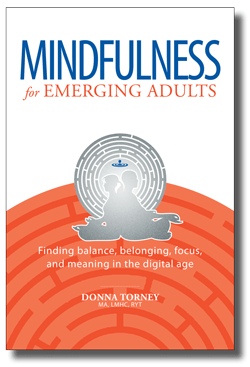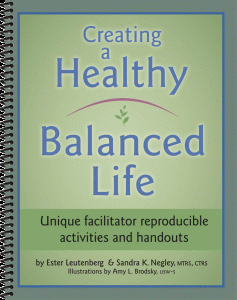Book Release
For Immediate Publication
 Mindfulness for Emerging Adults
Mindfulness for Emerging Adults
Finding balance, belonging, focus and meaning in the digital age.
By Donna Torney, MA, LMHC, RYT
Publisher: Whole Person Associates
Number of pages: 258
Publication Date: September, 2017
Contact Person: Peg Johnson, or Carlene Sippola: 800-247-6789
Duluth, MN – Whole Person Associates proudly announces the publication of Mindfulness for Emerging Adults by Donna Torney, MA, LMHC, RYT.
Mindfulness for Emerging Adults explores the task of becoming an adult in the twenty-first century. Advances in neuroscience underline the imperative to see mindfulness and other contemplative practices as indispensable life skills. These ancient and now rigorously researched practices are more important than ever in our age of accelerated change, media overload, and chronic busyness. The scientific community has now provided unrefuted evidence that these practices create positive change in the mind and body. By exploring and adopting mindfulness and other contemplative practices which the author calls Center Points, emerging adults can forge a path to find authentic identity and healthy personal and community connections, creating a good life in the digital age.
For the emerging adult (somewhere between 19 and 30) the mindfulness skills learned in this book will help take control of stress and manage difficult emotions. Donna leads the reader to become grounded in the present moment and experiencing more ease, contentment, and life satisfaction – a state that positive psychologists refer to as well-being. Throughout the book, highlighted sections entitled Voices of Emerging Adults tell the stories of typical young adult struggles. These stories are a composite of tales Donna hears in her private therapy practice, with details changed to protect privacy. The most common themes are highlighted, such as finding intimacy in a digital world, managing debt, finding a fruitful and worthwhile career path, managing difficult emotions, and practicing self-care. Mindfulness for Emerging Adults will inspire hope in young adults looking for the good life.
This book is written for parents, teachers, counselors or other mentors of young adults as well as the emerging adults themselves. Highlighted sections entitled Thoughts for Mentors will guide mentors to better relate to young adult challenges. By listening to the voices of modern young adults and comparing their stories to the timeless developmental challenges of past generations, readers will be able to build greater understanding of the perennial journey to adulthood.
About the author:
 Donna Torney is a licensed psychotherapist based in Cambridge, Massachusetts. She uses mindfulness-based cognitive therapy and other mindfulness informed tools to treat teens, emerging adults, and mature adults who are seeking to manage anxiety, depression, trauma, and interpersonal struggles. In addition to her formal training in psychological counseling, Donna has studied with many leaders in the fields of contemplative neuroscience, yoga therapy, and meditation. She is passionate about combining Western psychology with researched contemplative practices to offer a unique approach to therapy and wellness. Donna Torney is available for speaking engagements. She can be reached at donnatorney.com.
Donna Torney is a licensed psychotherapist based in Cambridge, Massachusetts. She uses mindfulness-based cognitive therapy and other mindfulness informed tools to treat teens, emerging adults, and mature adults who are seeking to manage anxiety, depression, trauma, and interpersonal struggles. In addition to her formal training in psychological counseling, Donna has studied with many leaders in the fields of contemplative neuroscience, yoga therapy, and meditation. She is passionate about combining Western psychology with researched contemplative practices to offer a unique approach to therapy and wellness. Donna Torney is available for speaking engagements. She can be reached at donnatorney.com.

